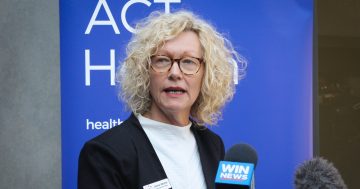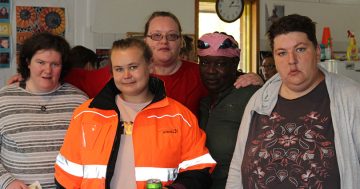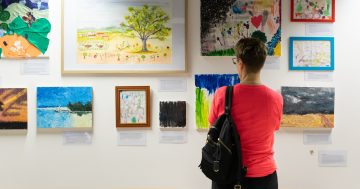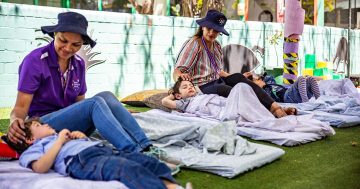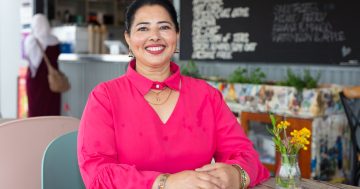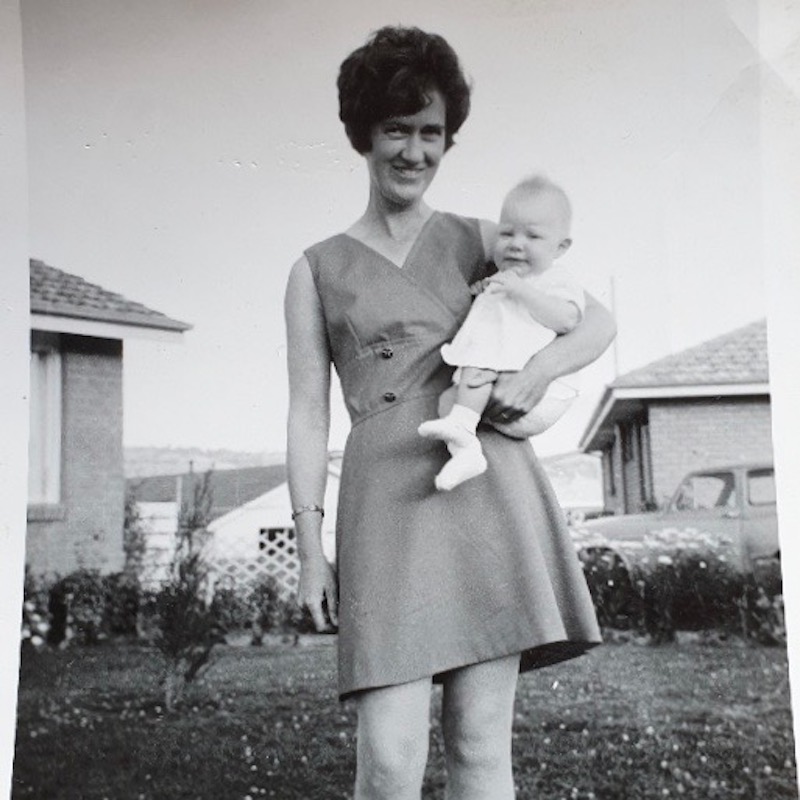
Maisie Griffiths in her earlier years in Canberra, with baby daughter Sarah. Photos: Supplied.
In the outlying suburbs of Lyons and Chifley in 1966 a strange thing happened to 31-year-old Maisie Griffiths.
Loneliness overcame most new arrivals like her, at home looking after her sons Paul, 4, and Simon, 2, while her husband went off to work with Defence. But not Maisie. “I met more people in six months than I had in all my time in London,” she says.
In Australia temporarily for three years, the family did not sell their home in Surrey, expecting to return home. But when the time came to leave, they remained in Canberra.
Maisie helped start Woden Community Service, which swiftly went to the core of social problems in Canberra’s new suburbs.
Loneliness was rife. Maisie found herself surrounded by strangers and paddocks full of sheep. “You had just arrived in a new city, and not everyone found it easy to get out and meet people. They had little children trailing along with them, and many of them had left their family support behind,” Maisie says.
Outgoing people like her met to form Woden Community Service in 1969. Ten people attended their first meeting. Later, three made their home telephones available for a referral and counselling service. Others reached out to young married people and provided babysitting services and playgroups.
Maisie had her own transport and travelled to Manuka for the weekly grocery shop. She drove others to medical appointments, or to their children’s play groups. Born in Buckinghamshire, Maisie had qualified as a special education teacher, but could not join the workforce in Canberra. “It was a different world back then, it was never questioned, the women stayed home looking after the children,’’ she says.
Two days a week at Woden Community Service she ran the Nearly New clothing store at Torrens Community Hall, buying and selling children’s clothes. Much of it was donated. “The Italian and French embassies donated beautiful clothes,” Maisie says. “We didn’t make much money which didn’t matter, the main reason was to get people to come into the office.”
They moved to the Lollipop shop in Corinna Street, Lyons, where she continued her work.
By June 1970, senior citizens were attending regular morning coffee meetings. A “New Mum” visiting team formed. Meanwhile, the phone service was hitting its straps. From June 1970 to June 1971 they fielded 153 calls, which led to 102 visits helping new mothers with access to services and transport. As WCS developed, psychologists and social workers were enlisted.
Warmth seeped into the loneliest souls of Woden as growing numbers of volunteers shared information with newcomers and made friends over a cup of tea. Children were driven to pre-schools and day care, sick people to hospital and old people to morning tea or an uplifting day’s shopping in town.
Maisie also had a daughter, Sarah, and moved to Farrer, and later to Holder, where she grew to love walking her dogs in the pine forest until the 2003 firestorm destroyed it. Now she looks out at Molonglo’s housing density and misses the forest.
Elderly founding members of WCS have passed away or moved on, but the service is busier than ever. Today it has almost 400 paid employees and 100 volunteers.
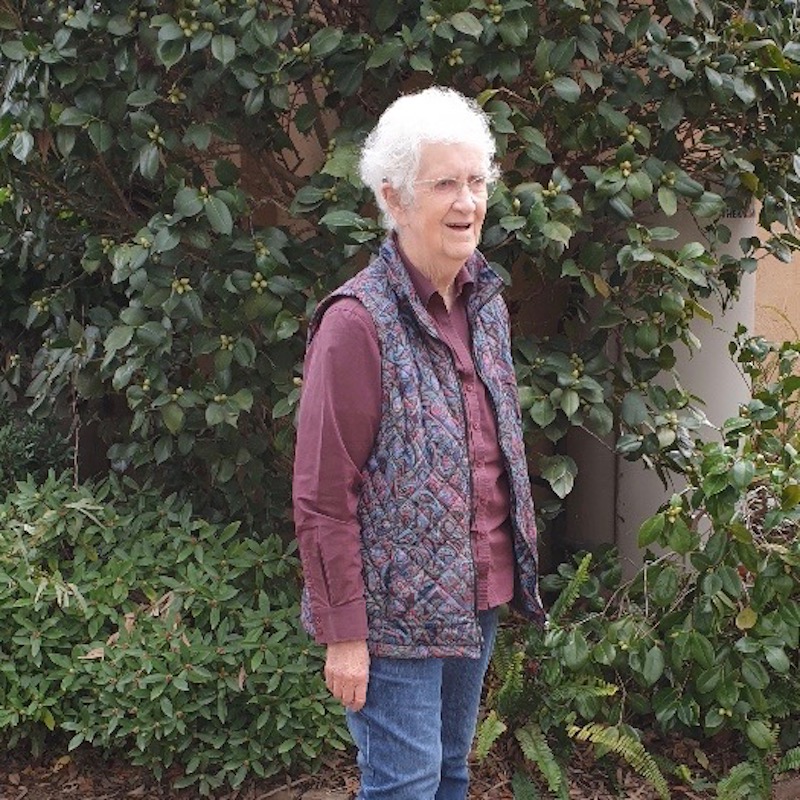
Maisie Griffith today, reflecting on her fulfilling time with Woden Community Service.
Earlier this year Maisie lost Nash, her lively, ever-faithful Hungarian Vizsla who had accompanied her to schools where she voluntarily taught children about human’s early development.
One Saturday recently, Maisie went to a sausage sizzle at Holder to hear about a community housing project. She saw Kim Spinks wearing a Woden Community Service label. “I walked up to her and said I was a founding member and Kim said, ‘you are just the person we are looking for’,” Maisie says.
WSC is celebrating its 50th anniversary and wants to contact as many of the early members as possible. Maisie has provided six names of past members. On Tuesday, July 30, an afternoon tea from 2-4pm at Pearce Community Centre will be held for them all to share their stories and photos of those remarkable days. Past members should call 62822644 or email: info@wcs.org.au
“It will be nice to see some of the people I knew, I’m quite excited,” Maisie says. “I wonder whether I will recognise anyone. It will be a strange experience.”












